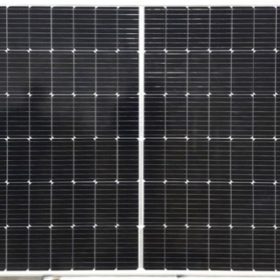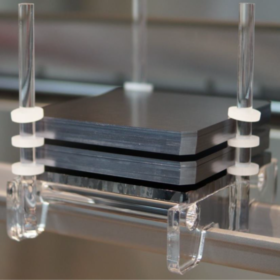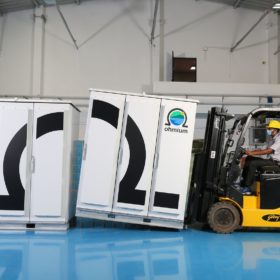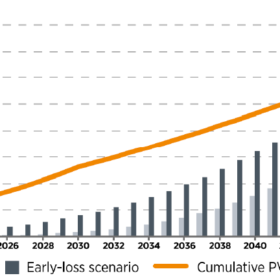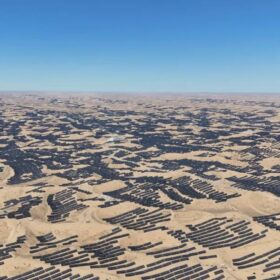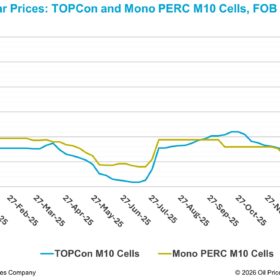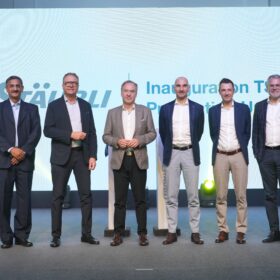NTPC, GE Gas Power sign MoU for hydrogen co-firing in gas turbines
NTPC and GE Gas Power will collaborate to explore the feasibility of hydrogen co-firing blended with natural gas in GE’s 9E gas turbines installed at NTPC’s Kawas gas power plant in Gujarat. NTPC will provide H2 required for the project.
NeoSol unveils 550 W mono PERC module
The Indian solar manufacturer has unveiled Black Pearls series mono PERC modules in power outputs ranging from 535 W to 550 W, with power conversion efficiency between 20.7% and 21.33%.
New production process could double wafer throughput to up to 20,000 per hour
Scientists from Germany’s Fraunhofer ISE – together with a consortium of plant manufacturers, metrology companies, and research institutions – have developed a new production line concept for high-efficiency silicon cells, with a throughput of 15,000 to 20,000 wafers per hour – roughly double the usual amount.
Premier Energies launches India’s first M10 bifacial solar cell
Premier Energies has become the nation’s first solar manufacturer to launch a bifacial monocrystalline silicon PERC (passivated emitter rear contact) solar cell based on the 182×182 mm2 format. The cell boasts an efficiency of up to 23.2%.
Ohmium, Amp Energy collaborate on 400 MW of green hydrogen
Renewables developer Amp Energy India will deploy Ohmium’s proton exchange membrane (PEM) electrolyzers for mid-scale commercial and industrial projects with an individual capacity of 25 MW or smaller.
Jakson reveals plans to manufacture solar cells, electrolyzers
Jakson Green will expand its solar module manufacturing capacity to 2 GW, with backward integration into cells, by the end of 2024, CEO and Managing Director Bikesh Ogra told pv magazine on Day 1 of Renewable Energy India Expo 2022. He said the company also has aggressive plans for green hydrogen and ammonia, with a specific focus on distributed generation.
Sunpower launches two new batteries for residential applications
The two batteries have a storage capacity of 13 and 19.5 kWh, respectively. Both lithium-ion systems use LiFePO4 as the cathode material and have a round-trip efficiency of over 86%.
Goldi Solar unveils 710 Wp HJT module, plans for massive expansion by 2025
The Indian manufacturer has unveiled a 710 Wp bifacial solar module based on the heterojunction (HJT) technology. It also announced plans to invest over INR 5,000 crore ($613 million) to expand its module capacity to 6 GW, build 5 GW of new cell manufacturing capacity, and start auxiliary production by 2025.
IEA PVSP predicts high-cost, low-revenue scenario for solar recycling
A recent report by the International Energy Agency Photovoltaic Power Systems Programme (IEA PVSP) reviews the current regulatory and industrial landscape for end-of-life PV management in Germany, France, Italy, Spain, Japan, South Korea, China, Australia, and the United States.
Reliance New Energy to invest in perovskite solar startup Caelux
The new energy arm of Reliance Industries has signed the agreement to acquire a 20% stake in California-based perovskite solar startup Caelux for $12 million. The investment will accelerate Caelux’ product development and commercialization.

